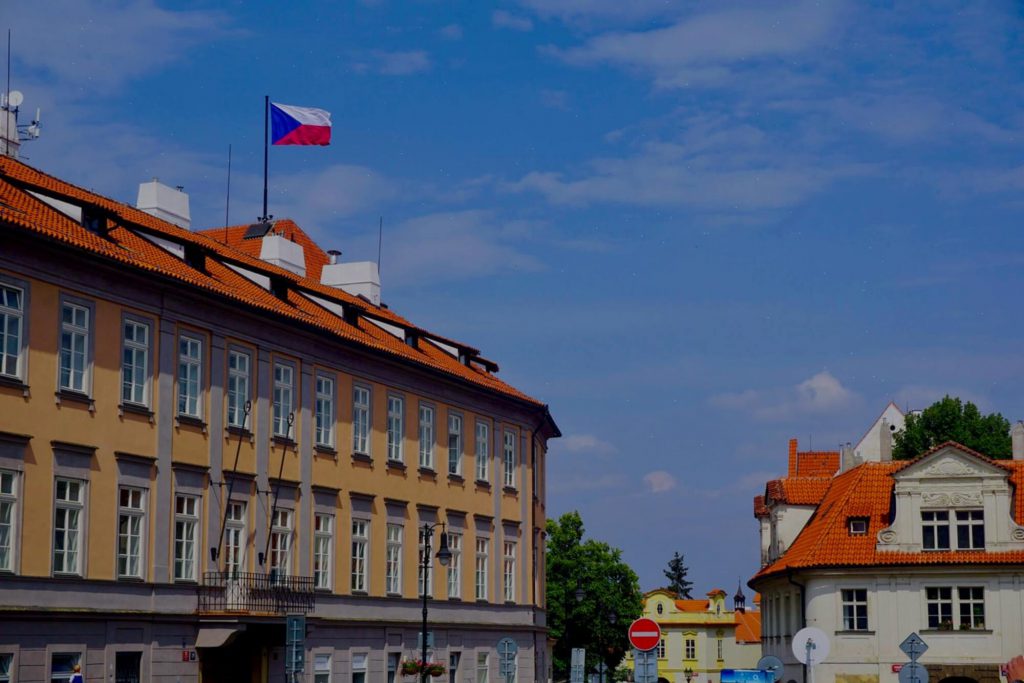The Czech Republic is one of the few European countries that offer foreign applicants a unique opportunity – free education in all state universities, regardless of the profile of the university or the chosen specialty. Studying in Europe is the best foundation for a successful career.

The system of higher education in the Czech Republic
Higher education institutions offer undergraduate (3-4 years), graduate (1-3 years), and doctoral (3-4 years) programs. Students’ assessment methods depend on the chosen field of study, but, as a rule, the results are assessed using the European Credit Transfer and Accumulation System. The diploma of Czech universities is recognized in all European countries (also in Canada, the USA, Australia, and others) and gives graduates good chances of finding a job.
The academic year runs from mid-September to the end of June and is divided into two semesters. Students can plan their classes and attendance on their own, including compulsory subjects and elective courses. At the end of the semester, students take exams and tests and earn credits. Each university informs in advance about the number of credits required for the transition to the next academic year.
Foreign students arrive in the Czech Republic on a student visa. The basis for obtaining a student visa is university enrollment. After completing the study program, there are usually no problems with employment, which makes it possible to change the visa for a work visa and stay in the country.
Higher education in the Czech Republic: tuition fees and scholarships
Both residents and foreigners can get higher education in the Czech Republic for free. Public universities are funded by the state, so the student does not have to spend money on education (except for the cost of renting housing, food, and personal needs). But there is a small entrance fee and additional payment for the extension of the study program if its duration exceeds the period set by the university.
Free training is available only in Czech. If a program chosen is in English, the cost of education in the Czech Republic will vary between 2.7 and 15 thousand euros per year, depending on the university and specialty. Education in private universities in the Czech Republic is paid for everyone.
As in all European countries, international cooperation in the field of scientific research is developed here. Participation in exchange programs or scholarship programs implies not only free education in the Czech Republic but also receiving a sum of money to cover related expenses (housing, food, transport).
Every year, the government of the Czech Republic provides scholarships for studies in the Czech language (for bachelor’s and master’s programs plus one year of language training) and in English (for master’s and doctoral programs). Enrollment is possible only for certain specialties. A complete list of participating universities with requirements for applicants is indicated on the website of the Czech Ministry of Education.
If a student entered a university on a general basis, studies for free, and demonstrates excellent results in research work, he/she also can apply for a scholarship.
Higher education in the Czech Republic: how to apply
If the decision on higher education in the Czech Republic has been made, and all the pitfalls and advantages have been studied, it is time to apply. For this, students apply directly to the selected educational institutions. Universities have their requirements for documents, deadlines, and procedures, so it is worthwhile to carefully study the website of the selected university in advance. The deadline for application is from February to April. It is allowed to try your hand at several programs and educational institutions.
Required documents
The minimum list of what is required:
- completed application;
- a copy of a school certificate or university diploma (information below);
- paid registration fee (20-30 euros for each study application);
- special requirements: motivation letter, portfolio, CV, a test of knowledge of English, and more.
Closer to summer, educational institutions are sending out invitations to entrance exams and interviews. Knowledge is assessed in subjects that reflect the specifics of the chosen course.
Recognition of documents
The final step in admission will be confirmation that the completed studies at home are equivalent to Czech. The process of recognizing secondary and secondary specialized education is called nostrification and lasts a month or a little more. If an applicant in his home country studied in institutions accredited by the Ministry of Education, then there will be no problems. Foreign applicants are usually assigned exams in those subjects for which there are not enough hours.
You need to collect notarized copies of the following documents:
- certificate of completion (general) education;
- a certificate with a list of school subjects and the number of hours allotted for their study;
- a certificate confirming that the educational institution is accredited by the Ministry of Education of the home country.
All listed documents are translated into Czech by a court translator and submitted to the regional education department in the Czech Republic, which will prepare a document on equivalence.
For master’s and doctoral programs for nostrification, you need to prepare the same package of papers as for admission to a bachelor’s degree. Also, certified and translated into Czech copy of the bachelor’s diploma. In this case, documents are submitted to state universities with a similar curriculum.
Entering a Czech university seems like a rather confusing process. In fact, there is nothing difficult with enrollment into a Czech university. The main thing is to figure out the deadlines and draw up a plan. And the motivation is life and study in a new country with a rich culture, prospects, and an international community.
